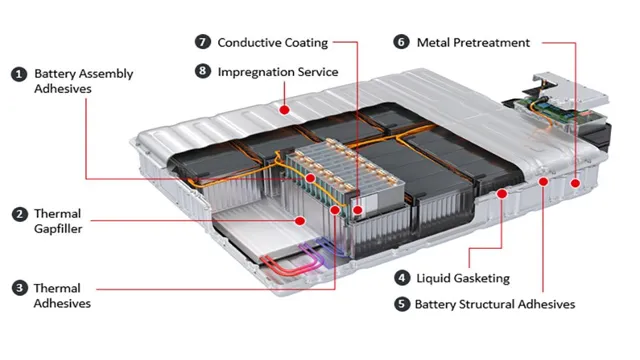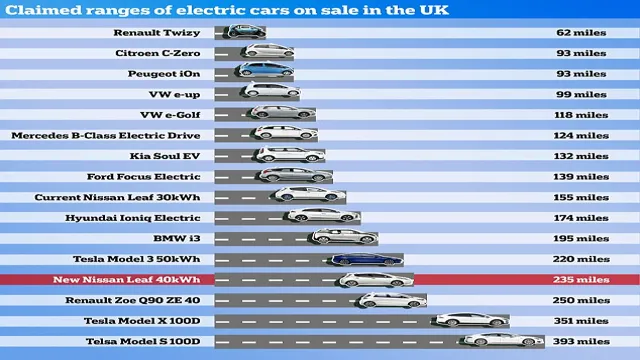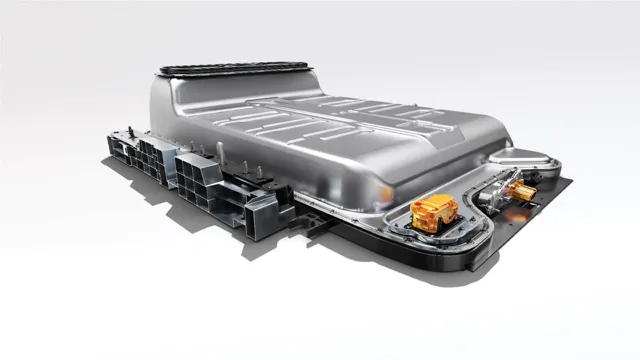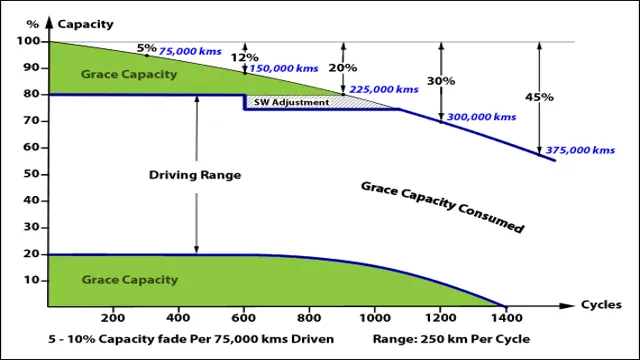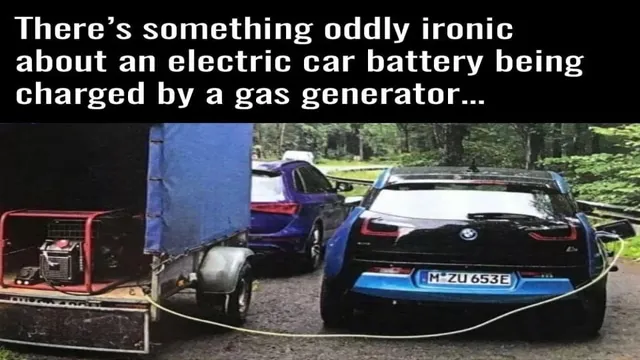Powering the Future: The Environmental Impact of Electric Car Batteries
Electric cars are hailed as the future of transportation, touted as eco-friendly alternatives to their gas-guzzling counterparts. However, questions have been raised about the environmental impact of one of the key components of electric cars – the batteries. While electric car batteries eliminate greenhouse gas emissions during use, their production and disposal present significant environmental challenges.
In this blog post, we will explore the impact of electric car batteries on the environment, weighing the pros and cons of this impressive technology. So buckle up and let’s dive in!
Impact on the Environment
When it comes to the impact on the environment, electric car batteries have both positive and negative effects. On one hand, they contribute to reducing harmful emissions and improving air quality since they don’t emit pollutants when driving. However, the production of electric car batteries requires the mining of raw materials such as lithium, cobalt, and nickel, which can be damaging to the environment.
Additionally, when these batteries reach the end of their lifespan, they need to be disposed of or recycled properly, which can be a challenge. Despite these challenges, advances in technology and increased investment in sustainable production methods offer hope that electric car batteries can be produced in a more environmentally friendly way. So, while electric cars help reduce the carbon footprint of transportation, we must continue to monitor and improve the impact of electric car batteries on the environment.
Carbon Footprint of Manufacturing
The manufacturing industry is a significant contributor to carbon emissions, with the production of goods utilizing large amounts of energy and resources. The carbon footprint of manufacturing activities and processes includes the use of electricity, power plants, and transportation. Additionally, the manufacturing sector produces waste and pollution that can lead to serious environmental impacts such as water and air pollution.
Many companies are now implementing sustainable policies to reduce their carbon footprint, including using renewable energy sources and optimizing manufacturing processes to reduce waste. It is important to understand the impacts of manufacturing on the environment and take necessary steps to reduce the harmful effects of production on the planet. By doing so, we can create a more sustainable future for generations to come while still meeting our manufacturing needs.
Disposal and Recycling
When we think of disposal and recycling, we often assume it’s a straightforward process that has little to no impact on the environment. However, the reality is the complete opposite. The improper disposal of waste can lead to pollution, greenhouse gas emissions, and even harm to wildlife.
It’s crucial that we do our part to reduce our carbon footprint by disposing of waste responsibly and recycling when possible. Recycling protects natural resources, conserves energy, and reduces greenhouse gas emissions. It’s easy to forget that even small actions like properly disposing of a single piece of trash can make a significant difference in the long run.
So let’s take a step back and think about how we can minimize our impact on the environment through responsible waste disposal and recycling.
Benefits of Electric Car Batteries
Electric car batteries are often touted for their environmental benefits compared to traditional gasoline engines. The technology behind electric car batteries is constantly improving to make them more efficient and cost-effective. When compared to internal combustion engines, electric cars produce significantly fewer emissions, which helps to combat air pollution and climate change.
Additionally, electric car batteries can be recharged from renewable energy sources, such as solar or wind power, making them even more environmentally friendly. By choosing electric car batteries over traditional fossil fuels, we can reduce our carbon footprint and contribute to a cleaner, more sustainable future.
Reduced Dependence on Fossil Fuels
Electric car batteries can greatly contribute to reducing our dependence on fossil fuels. They are an eco-friendly alternative that can help decrease carbon emissions and mitigate the effects of climate change. Furthermore, electric cars are becoming increasingly affordable and practical, making them a viable option for drivers looking to reduce their carbon footprint.
But the benefits of electric car batteries go beyond the environmental impact. Their efficiency is unmatched when compared to gas-powered cars, offering a smoother and almost silent driving experience. Plus, their low maintenance costs and longer lifespans make them a cost-effective option in the long run.
Without a doubt, electric car batteries represent a promising solution for reducing our dependency on traditional fuels and promoting a cleaner, greener future.
Lower Emissions During Use
One of the most significant benefits of electric car batteries is that they result in lower emissions during use. Unlike conventional vehicles that rely on fossil fuels, electric cars use electricity stored in their batteries to power the engine. This means that electric vehicles do not produce emissions from burning gasoline or diesel, which helps to reduce air pollution and improve overall air quality.
Additionally, electric cars have the potential to use renewable energy sources, such as wind turbines and solar panels, to charge their batteries, further reducing their environmental impact. So, not only can electric cars save you money on gas and maintenance costs, but they also allow you to reduce your carbon footprint and contribute to a healthier planet. Overall, electric car batteries have numerous benefits that make them a worthwhile investment for eco-conscious drivers looking to reduce their environmental impact while still enjoying the convenience of a personal vehicle.
Improved Air Quality
Electric car batteries have brought about improved air quality, making them an eco-friendly option. With no emissions from electric car batteries, they contribute to cleaner air and reduce the number of pollutants in the atmosphere. This greatly benefits individuals with respiratory problems and chronic conditions, as it reduces their exposure to harmful pollutants.
Additionally, the improved air quality leads to a healthier environment for wildlife. The use of electric car batteries also reduces the need for fossil fuels, further reducing carbon emissions. With the growing concern for the state of our planet, electric cars are a major solution in the battle against pollution.
By transitioning to electric cars, we can lessen our negative impact on the environment and take a step towards a sustainable future.
Future Developments
Electric car batteries versus the environment is a crucial topic that is being discussed nowadays. However, several innovative initiatives are being developed to reduce the impact that these batteries could have on the planet. One of these initiatives is the creation of recyclable batteries that don’t use toxic metals such as lead and cadmium.
Additionally, scientists are working on developing solid-state batteries that are safer, more efficient, and less harmful to the environment. Apart from recycling batteries, other ways to reduce the environmental impact of electric cars include using renewable energy sources to charge them and promoting a circular economy for their components. With the introduction of these new technologies, electric cars can become the future of transportation without harming the planet.
We can expect many more advancements in the future that will make these vehicles even more environmentally friendly.
Advancements in Battery Technology
Battery technology has come a long way in recent years, with advancements that have resulted in longer-lasting and more efficient batteries being developed. However, the future promises to be even brighter with the development of new technologies. One of the most promising developments in battery technology is the creation of solid-state batteries.
These batteries, while still in the early stages of development, have several advantages over traditional lithium-ion batteries. They are safer, as they do not use a liquid electrolyte which can be a fire hazard. Additionally, they have the potential to offer twice the energy density of current battery technology.
Along with solid-state batteries, researchers are also looking into alternative chemistries that could result in batteries that are even more efficient. For example, lithium-sulfur batteries have the potential to store up to five times more energy than lithium-ion batteries. As these new technologies continue to be developed and refined, the future of battery technology looks bright, with the potential for longer-lasting, more efficient batteries that power everything from smartphones to electric vehicles.
Research on Disposal and Recycling
As the world continues to focus on sustainable waste disposal methods, new developments are emerging in the recycling and disposal industry. One of the main areas of focus is the development of innovative waste management technologies that can make the process of recycling and disposal more efficient and cost-effective. For instance, researchers are exploring the use of advanced sorting systems that can separate different materials and make them easier to recycle.
They are also experimenting with new recycling processes that can enable the extraction of more valuable materials from waste streams. These developments are crucial in ensuring that we can continue to manage and dispose of waste effectively without harming the environment. With these technologies, we can significantly reduce the amount of waste that ends up in landfills and improve resource management.
Keyword: recycling and disposal industry
Conclusion
In the debate of electric car batteries vs environment, it is clear that electric cars have a lot to offer when it comes to reducing air pollution and greenhouse gas emissions. While there are concerns about the environmental impact of lithium-ion batteries, advancements in battery technology and recycling processes are making strides towards minimizing their footprint. Additionally, the benefits of electric cars extend beyond just the environment – they also offer cost savings on fuel and maintenance.
So if you’re looking for a way to reduce your carbon footprint and save money in the process, an electric car might just be the perfect choice for you.”
FAQs
How do electric car batteries impact the environment?
Electric car batteries can have a negative impact on the environment when they are not disposed of properly. The materials used in lithium-ion batteries can be toxic and harmful to the environment if not recycled correctly.
Are there any benefits to using electric car batteries?
Yes, there are several benefits to using electric car batteries. Electric vehicles emit fewer greenhouse gases and pollutants than traditional gasoline-powered vehicles. Additionally, using electric car batteries can help reduce our dependence on fossil fuels.
How can we recycle electric car batteries?
There are several ways to recycle electric car batteries. Many automakers have implemented recycling programs where they collect used batteries and recycle the materials. Additionally, there are specialized recycling facilities that can properly handle the materials used in electric car batteries.
Can electric car batteries be reused?
Yes, electric car batteries can be reused for other purposes, such as energy storage in homes and businesses. This can help reduce the overall environmental impact of the batteries and extend their lifespan.
